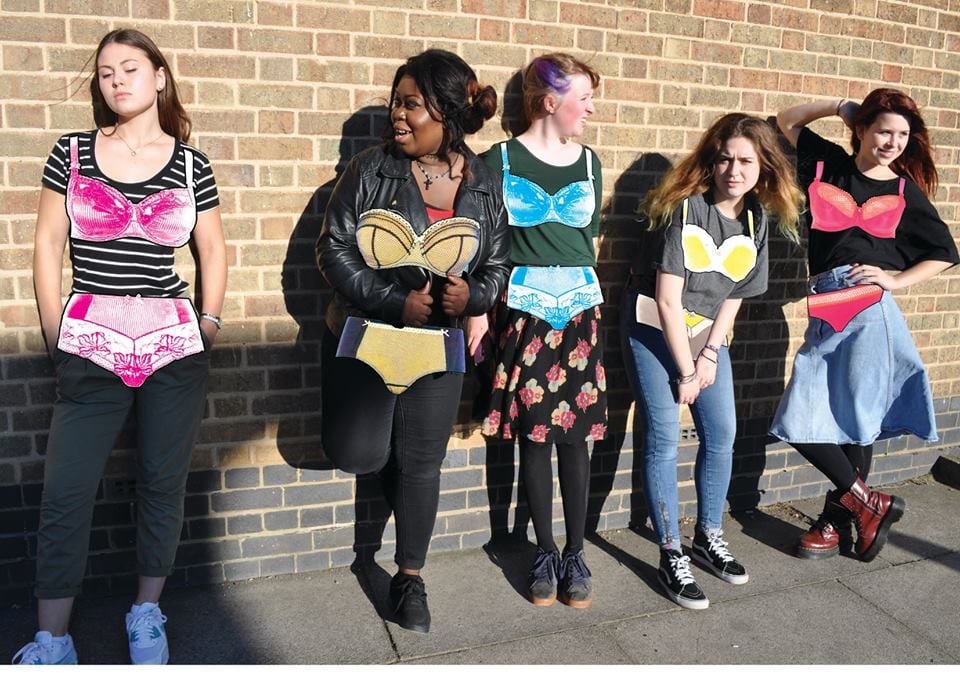Both Happy Girl and Boys Will Be Boys are part of the ‘Tomorrow’s Feminists Today’ section of Camden People’s Theatre’s festival of feminist theatre. Both are devised by local teenage girls – Happy Girl by A Level drama students from St Marylebone School, and Boys Will Be Boys by students from Corelli College. They also both deal with a lot of the same issues – the sexualisation of girls from a young age, the prevalence catcalling and sexual harassment, the pressure to look and behave a certain way – and the fact that two completely disparate groups have identified almost exactly the same problems probably says something about how ingrained they are in our culture and the day to day lives of teenage girls.
Happy Girl begins with a single girl slouched, reading, onstage, the walls behind her strewn with sexist advertising slogans and images. The play follows a group of classmates through several weeks of secondary school, exploring the variations of derogatory language through the casual conversations of teenage girls that they then dissect. It is not naturalistic, but it doesn’t need to be – this is their culture, and they pull it apart with adept, focused critiques. They use the slightly forced trope of seeing the whole thing through an outsider’s eyes – Irene, who has grown up in a commune – who reacts with confusion or indifference to things the others are aware of, but unsure of how to change. “It’s like you’re in this bubble, but it’s not your bubble” she remarks at one point, trapped in a world where everything has at least two meanings.
The production flashes between scenes quickly, exemplifying the sped-up lives of teenagers – a phenomenon the characters themselves remark upon. Even those who are trying to recognise problems are caught up them, showing just how insidious the culture of misogyny is. It’s not all serious debate, however. Rose, who ruefully acknowledges her own role as the ‘clown’ is both funny and wonderfully moving. Happy Girl contains all the best elements of teen movies – the highs of friendship, the flush of first love, the joyous dance number to Marina and the Diamonds’ Blue It is at moments like this that the final line – “happy girls isn’t just a myth” – really feels like it could be true.
Boys Will Be Boys is a much rawer look at the same issues. The girls are dressed in black, with bright coloured lingerie over it – lingerie they remove in the final moments of the play. The dialogue is interspersed with snippets of sexualised pop songs, including the infamous Blurred Lines. All the actors play multiple roles, slipping into the voices of different women and men. The conversations between the ‘lads’ are particularly well-done – they are obviously stereotyped, but with good reason and with good effect. There is occasional humour in the clashes between boyfriend and girlfriend, between mum and daughter, but there is an underlying darkness throughout. This is not a production afraid to fully release the very present anger, and when the girls tell their own stories – using the umbrella of the #everydaysexism project – it is immensely moving.
Yelled statistics are interspersed with frustrated monologues as the chorus tears down what they’ve been saying with the same old tired excuses and insults. Negative statements are echoed louder by the chorus, becoming overwhelming and distressing. The production can feel too much at times, but it does an excellent job of viscerally conveying the destructive nature of the sexism they face. This is effective work from two groups of teenagers, and I look forward to seeing what these promising young women do next.

